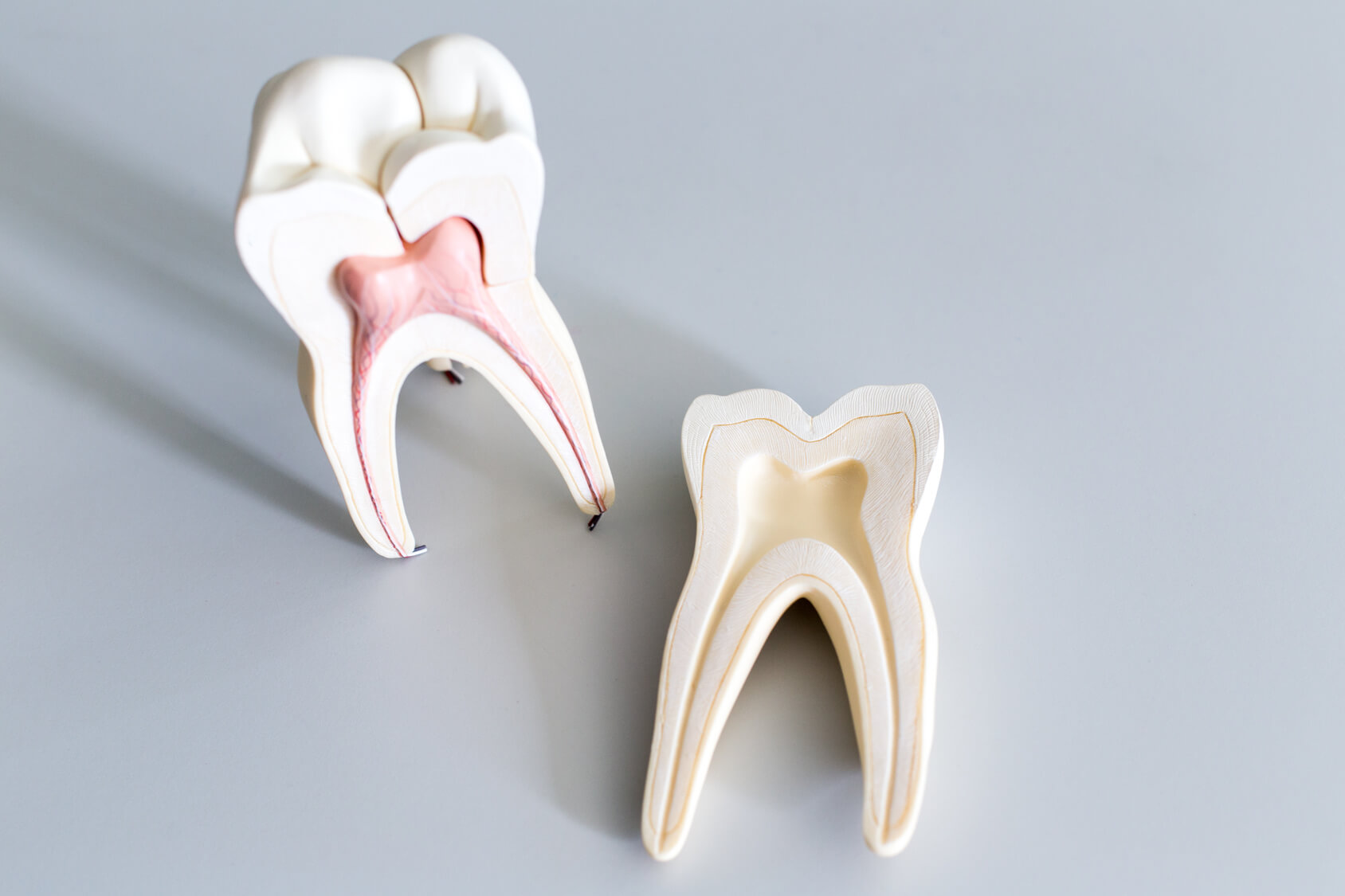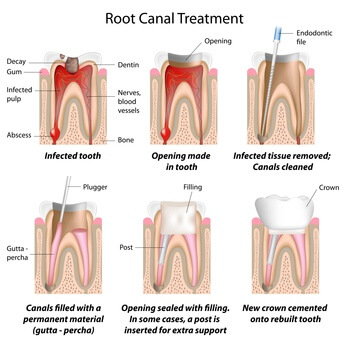

The procedure treats disorders of the pulp (the soft tissue inside the crown and roots made up of blood vessels, nerves and lymph vessels that help keep your tooth nourished).
Endodontic treatment restores your tooth to a comfortable state by removing the damaged tissue and replacing it with a substance that will help preserve the function of the tooth.
There are many reasons that a root canal may be needed but the most common case is the carious process (the uncontrolled process of tooth decay).
When tooth decay begins, it penetrates the outer layer of enamel and creates a cavity. If that process is not stopped, the decay will continue toward the nerve of the tooth.
Other causes include a fracture that exposes the pulp, traumatic injury such as a blow to a tooth, a cracked or loose filling or repeated fillings in a tooth and occasionally from periodontal (gum) disease. Regardless of the initial cause, the tooth pulp becomes irritated and and abscess (infection) can occur. Bacteria from our saliva grow within the tooth pulp, causing pressure and pain. Eventually the pulp dies, causing the bone around the tooth to be destroyed.
All dentists receive training in endodontic/root canal therapy. However, sometimes complicated cases or re-treatments are referred to endodontists, a specialist who limits his/her practice to root canal procedures.
The sooner you get treatment the better: your risk of losing the damaged tooth is decreased, your pain can be relieved, and your dentist may prevent infection from spreading further.
Nowadays 95% of the cases teeth are saved with endodontic therapy.
Once it has been determined (with x-rays and clinical examination) that root canal treatment is necessary, you will be scheduled for one or more appointments. Your visits may last one to two hours, and you will receive local anesthesia. A rubber dam (a protective sheet of rubber that covers your mouth) may be used to isolate your tooth and prevent bacteria from entering it.
The goal of the root canal therapy is to improve the health of your damaged tooth by removing the pulp from your root canals through a small opening in the crown. Then the canals are sealed with special materials to prevent bacteria from reaching your bone. Your dentist then restores the outside of your tooth so it will function properly and have a healthy appearance. After root canal therapy, your tooth continues to be nourished by your surrounding gums and bone.
First, your dentist makes an opening in your tooth and removes any filling and decay. Then, the unhealthy pulp is removed with tiny, flexible files. By using delicate, up-and-down motions, your dentist gently cleans and smoothens your canals to prepare them for the canal-filling materials.
After the pulp has been removed from your root canals and they have been smoothened, your dentist will fill the canals with tiny cone-shaped pieces of gutta-percha, a firm, rubberlike material. A sealer-cement is used to seal the filling material into place.
After the inside of your tooth has been treated the outside will be restored to protect your tooth’s underlying structures and to give it a healthy appearance. If your tooth needs extra support, some of the gutta-percha may be removed and a post inserted before the filling and crown are applied.
Once the root canal treatment has been completed, you should be aware of the following considerations:
Root canal therapy is a common procedure for saving damaged or diseased teeth. Retaining a natural tooth is more efficient in chewing and biting and is less expensive than replacing it with an artificial one.
For the healthiest gums use these formulas for brushing, flossing, massaging gums, mouth-rinses, proxa-brushes, sulca-brushes, rubber-tip stimulators to overcome sensitive teeth, to ease the recovery of oral surgery, and for general overall cavity prevention.
A beautiful smile can give patients a lifetime of happiness!
(780) 484-0808